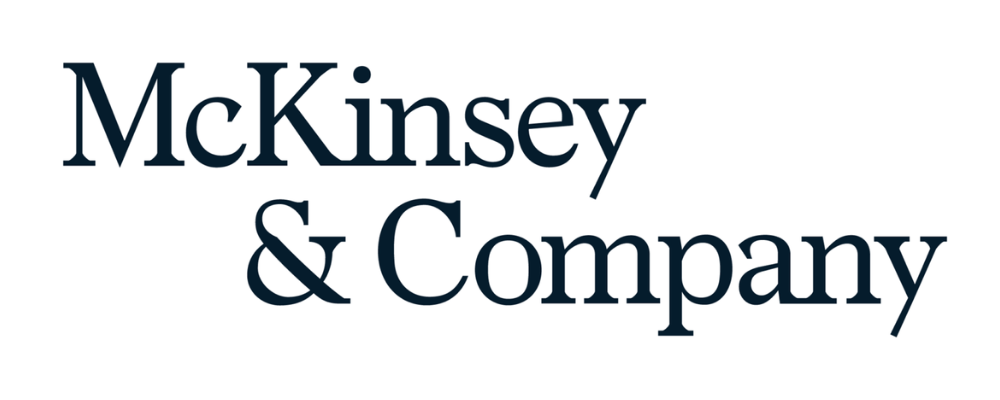
Inspiring leaders motivate their teams to embrace the opportunities and growth inherent in change, according to Neeti Bhalla Johnson, the president of Global Risk Solutions at Liberty Mutual Insurance (Liberty). Born in India and raised in Kenya, Bhalla Johnson is passionate about furthering diversity, equity, and inclusion at the insurer, cosponsoring a group for Asian professionals there and participating in its women’s networking and advocacy group. She spoke with McKinsey about the opportunities and challenges facing the insurance industry, weathering market cycles, and taking the biggest leap of her career. An edited version of the conversation follows.
McKinsey: What are the most exciting topics in the insurance industry today, and which trends do you see having the greatest potential to disrupt the sector?
Neeti Bhalla Johnson: We at Liberty believe the world is going through multiple fundamental transitions—societal, technological, geopolitical, industrial—that will lead to an evolving risk landscape characterized by greater volatility and interconnectedness.
We see opportunities and challenges in terms of both pricing coverage appropriately, given uncertain loss trends, as well as providing clients with advice and coverage for new and emerging risks. Our clients’ expectations of their brokers and insurance carriers are expanding as their own business models face an accelerating pace of change. Old structures and approaches will no longer suffice to meet their needs. The future belongs to carriers building businesses that are risk aware, not risk averse, and are rooted in a dynamic, forward-looking, data-driven, underwriting-centric culture that enables deep risk expertise across the entire value chain.
The rising number of lawsuits, along with higher verdicts, have been a big challenge with a significant and far-reaching impact across the industry. The result has been higher claims costs for insurers. It isn’t necessarily a new topic, but in recent years, the severity of claims has notably outpaced some critical inflation markers. This affects our cost to provide insurance, which in turn affects the premium costs to clients that buy our policies and ultimately the prices that consumers pay for those businesses’ products and services.
Conversely, over the past decade, there has also been unprecedented technological advancement, and some of the most exciting disruptors we’re seeing are AI and generative AI. Leveraging these capabilities more fully has the potential to help insurers improve the entire value chain, from underwriting to claims and operations, which can ultimately generate more real-time insights in risk selection and mitigation, as well as provide the ability to be agile in serving clients.
Understanding and working to harness the many dynamic influences of our environment makes the insurance industry so fascinating—and the industry must continue to rise to the challenge.
McKinsey: Is there a key moment that helped you further your career and become a leader?
Neeti Bhalla Johnson: In 2013, I left Goldman Sachs, where I had worked for 13 years, to become Liberty’s deputy chief investment officer and head of investment strategy and risk. It was a leap of faith for me and my family—I have twin daughters born in 2008—and it’s been the most fulfilling leap of my career, full of learning and growth. That said, candidly, the first several months were tough, as it was a big shift from what I was used to.
That was a key moment. Even though I chose to make a career change and had done a ton of due diligence, adjusting to a new culture takes time. I learned that I cannot judge things, through rose-colored glasses, by what I left behind. Instead, I must embrace what’s different about the new and blend it with my prior experiences to contribute meaningfully to the growth of the organization, as well as my own growth. I also knew that I loved investing and risk taking, but I hadn’t anticipated how much I would love getting people excited about what’s possible.
I became chief investment officer in 2016. My time with the investment team created a belief that I could lead—that I could assess and unlock potential and drive a transformation. It helped me recognize and embrace what motivates me: a desire to challenge the status quo, identify opportunities through a future-focused lens, and mobilize an organization around a common vision, creating the belief that we can achieve more while empowering people to maximize their potential. That ultimately gave me the confidence and courage to take on my current role as president of Liberty’s Global Risk Solutions business in 2021.
McKinsey: What are the most important qualities for leaders weathering the ups and downs of macroeconomic forces and market cycles?
Neeti Bhalla Johnson: Henry Kissinger wrote, “Leaders think and act at the intersection of two axes: the first, between the past and the future; the second, between the abiding values and aspirations of those they lead. . . . They must balance what they know, which is necessarily drawn from the past, with what they intuit about the future, which is inherently conjectural and uncertain.” For me, this epitomizes what it means to be a leader—curiosity, courage, caring.
If you agree with our core belief about the future being inherently more volatile and uncertain, then gone are the days when leadership meant you had all the answers and made all the decisions. As leaders, we need to prepare ourselves, our people, and our organizations to expect the unexpected, to look around corners, to embrace and respond to change by thoroughly studying the past, present, and future through many different lenses to make informed decisions faster. Preparing teams to be more connected, tech savvy, adaptive, agile, and decisive in the face of an unpredictable future will differentiate successful organizational cultures, in my view.
My advice to leaders: Manage your personal energy, and focus on what you can control. Even with the best analysis, navigating market cycles is an imperfect science. Invite challenges to your thinking from inside and outside the organization. Also, push the organization to consider not only the cost of taking certain actions but also the cost of inaction, which can be harder to quantify but can come with an even greater penalty.
Leaders can build the capacity to expect change and then inspire and mobilize their organizations to boldly cross that bridge from a certain past to an uncertain but exciting future.
McKinsey: What inspires you on a daily basis?
Neeti Bhalla Johnson: My family, my colleagues, and helping people and organizations realize their full potential—learning, collaborating, and problem solving to build great things that have a positive impact. I believe we all need outside perspective to find growth. For me, that’s been my family challenging me to be a better person and my colleagues giving me the feedback and tools to grow. That give-and-take of inspiring others and being inspired is very fulfilling.
“Our firm is designed to operate as one—a single global partnership united by a strong set of values. We are equally committed to both sides of our mission: attracting and developing a talented and diverse group of colleagues and helping our clients create meaningful and lasting change.
From the C-suite to the front line, we partner with clients to help them innovate more sustainably, achieve lasting gains in performance, and build workforces that will thrive for this generation and the next.”
Please visit the firm link to site


